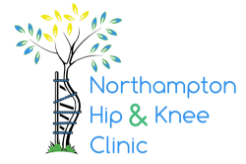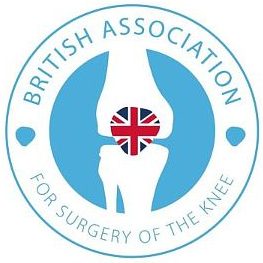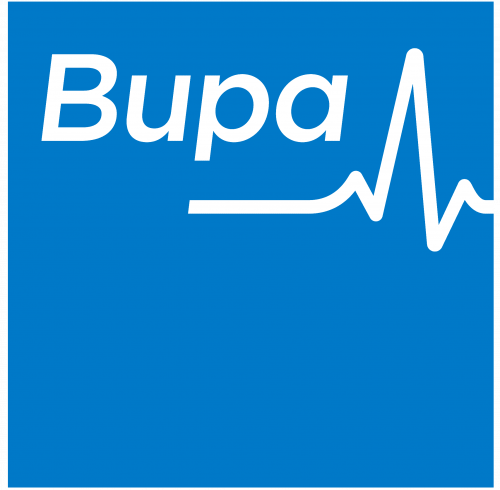Menopause brings significant changes to a woman’s body, including a reduction in oestrogen levels that can impact bone density and increase the risk of osteoporosis. Bone health is an essential part of overall well-being, especially during and after menopause, as bones naturally become more fragile with age. This article explores the relationship between menopause and bone health, the role of DEXA scans in assessing bone density, and the benefits and considerations of hormone replacement therapy (HRT) for bone health. If you are considering HRT, it is essential to discuss this with a qualified general practitioner, gynaecologist, or women’s health specialist to make an informed decision based on your unique health needs.
Why Menopause Affects Bone Health
Oestrogen, a hormone that naturally decreases during menopause, plays a vital role in maintaining bone density. This hormone helps balance the activity of osteoclasts and osteoblasts, the cells responsible for breaking down old bone and building new bone tissue. When oestrogen levels drop, the rate of bone resorption (breakdown) often surpasses the rate of new bone formation, leading to a decline in overall bone density. For many women, this translates to an increased risk of osteoporosis—a condition where bones become weak, brittle, and more prone to fractures, especially in the hips, spine, and wrists.
The rate of bone loss is most rapid in the first 5-10 years post-menopause, which is why it’s essential for women to be proactive in preserving their bone health.
The Importance of DEXA Scans
Dual-energy X-ray absorptiometry (DEXA or DXA) scans are considered the gold standard for measuring bone density. This non-invasive test provides a precise measurement of bone mineral density (BMD), helping to assess osteoporosis risk and track any bone density changes over time.
- When to Get a DEXA Scan: Generally, a DEXA scan is recommended for women over 65, but post-menopausal women younger than 65 with additional risk factors (e.g., family history of osteoporosis, previous fractures, low body weight, or prolonged use of corticosteroids) may benefit from earlier screening.
- What DEXA Scans Measure: DEXA scans provide a T-score, which compares your bone density to that of a healthy young adult. A T-score of -1.0 or higher is considered normal, between -1.0 and -2.5 indicates osteopenia (low bone mass), and -2.5 or lower signifies osteoporosis.
- The Value of Monitoring: Regular DEXA scans allow healthcare providers to track bone density changes and assess the effectiveness of interventions like dietary adjustments, exercise routines, and medications.
Lifestyle Strategies to Support Bone Health
Taking steps to support bone health during menopause can significantly reduce the risk of osteoporosis and fractures. Here are key lifestyle strategies:
- Balanced Diet Rich in Calcium and Vitamin D
- Calcium: Essential for bone strength, calcium can be obtained from dairy products, leafy greens, and fortified foods. Most post-menopausal women need about 1,200 mg of calcium per day.
- Vitamin D: This vitamin helps the body absorb calcium and is synthesized through sunlight exposure. Many people may need a supplement to reach the recommended 800-1,000 IU per day, especially during the winter or if they have limited sun exposure.
- Regular Weight-Bearing and Strengthening Exercises
Activities like walking, dancing, jogging, and strength training promote bone formation by stimulating bone tissue and improving muscle support around the bones. Exercise also enhances balance and coordination, which can reduce the risk of falls and fractures. - Avoid Smoking and Limit Alcohol
Smoking and excessive alcohol intake can both reduce bone density. Quitting smoking and limiting alcohol to moderate levels are beneficial for overall health, including bone health. - Consider Bone Health Supplements
Supplements like calcium and vitamin D are commonly recommended for menopausal women. However, it’s always best to consult with a healthcare provider to determine which supplements, if any, are right for you.
Hormone Replacement Therapy (HRT) and Bone Health
Hormone Replacement Therapy (HRT) is one of the most effective treatments for preventing bone loss in post-menopausal women. HRT involves taking oestrogen or a combination of oestrogen and progesterone to replace the hormones that are no longer produced by the ovaries after menopause. However, HRT is a medical decision that should be made with the guidance of a general practitioner, gynaecologist, or women’s health expert, who can evaluate individual risk factors and health history.
Benefits of HRT for Bone Health
- Slows Bone Loss: Oestrogen helps to balance the bone remodeling process, reducing the rate of bone loss that typically accelerates after menopause.
- Reduces Osteoporosis Risk: Studies show that HRT can help prevent osteoporosis and reduce the likelihood of fractures, particularly in the spine and hip.
- Improves Bone Density: HRT has been shown to increase bone mineral density, even in women who already have osteoporosis.
Considerations and Risks of HRT
While HRT has proven benefits for bone health, it is not suitable for everyone, and the decision to use HRT should be made in consultation with a qualified medical professional. Here are some factors to consider:
- Duration of Treatment: HRT is often most beneficial when taken at the start of menopause. Current guidelines generally recommend using the lowest effective dose for the shortest duration necessary to manage symptoms and protect bone health.
- Risk Factors: Women with certain medical histories, such as a history of breast cancer, blood clots, or stroke, may be advised against HRT due to potential risks.
- Alternative Treatments: For those who cannot or choose not to use HRT, there are other medications, like bisphosphonates and selective oestrogen receptor modulators (SERMs), that can help prevent bone loss and reduce fracture risk.
Always discuss the potential benefits and risks of HRT with your GP or specialist, who can provide personalised advice based on your overall health profile and goals.
Talking to Your Healthcare Provider
Bone health during and after menopause is a multifaceted topic that requires a personalized approach. Consulting a healthcare provider can help determine the best strategies for your unique needs. During your consultation, consider discussing the following:
- When to Begin DEXA Scans: If you’re approaching menopause or have risk factors for osteoporosis, ask your doctor when to start bone density testing.
- HRT Options: A GP, gynaecologist, or women’s health expert can discuss the benefits and risks of HRT and help you decide if it’s a suitable option for your bone health.
- Lifestyle and Dietary Adjustments: A healthcare provider can offer guidance on dietary choices, supplementation, and physical activities that support bone health.
- Alternative Medications: For those who cannot take HRT, other medication options, such as bisphosphonates, may be effective for bone density maintenance.
In Summary
Menopause can have a significant impact on bone health, but with proactive steps, you can reduce the risk of osteoporosis and enjoy a healthier, active life. Regular DEXA scans help monitor bone density, while lifestyle adjustments and, if appropriate, HRT or other medications can help prevent bone loss. Consulting with a GP, gynaecologist, or women’s health expert will help ensure you receive tailored advice, supporting your bone health now and into the future, keeping you active, strong, and resilient through all stages of life.















